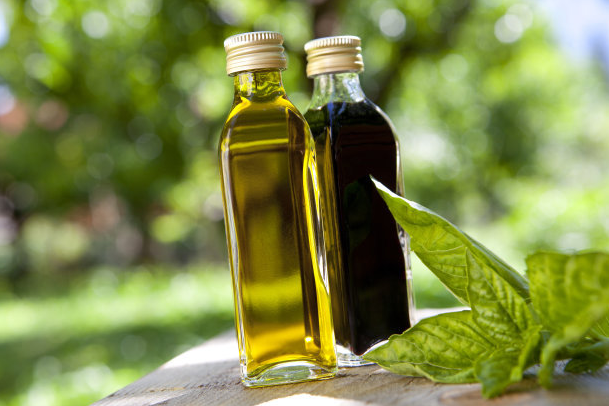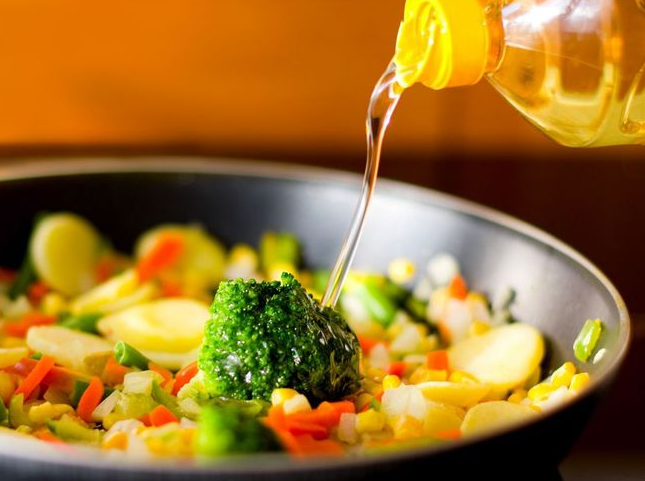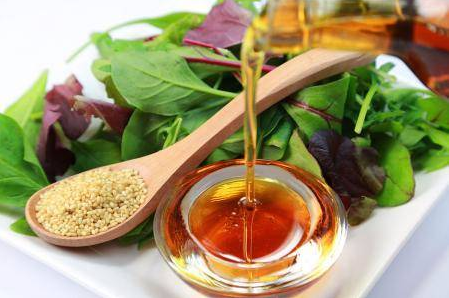At present, people are paying more and more attention to health preservation and longevity is everyone's dream. However, many elderly people are often surrounded by nutritional and health products that are difficult to distinguish between true and false, and are confused, but they have no time to take care of true nutritional and longevity foods, and even have many prejudices. This is what we usually use for cooking-vegetable oil.

Vegetable oil is derived from the essence of plants—seeds. It is obtained by pressing or squeezing, and then refined, "four-off" (degumming, deacidification, decolorization, and deodorization) to become highly pure, green, sterile, and highly safe nutrition Healthy food.
In summary, vegetable oil has the following three functions:
1. Vegetable oil is the most nutritious food, but also the easiest to digest and absorb.
Generally, doctors always warn the elderly, "Eat light and eat less greasy food." This means that fats are difficult to digest and absorb, which is not good for the elderly. In fact, this argument is questionable.
Compared with carbohydrates and protein, fat is the easiest high-nutrient food to digest.
Both carbohydrates and proteins are macromolecular compounds. The molecular weight of starch in flour and rice, which people often eat, is as high as 50,000 to 60,000, and the molecular weight of protein is as high as hundreds of thousands. The main component of vegetable oil-fatty acid triglyceride has a molecular weight of only about 800.
Starch and protein need to be cooked before they can be eaten. After ingestion, first chew in the mouth, mix with saliva, and then enter the stomach. After the strong peristalsis of the stomach, under the action of various enzymes, complex chemical reactions occur, decomposed into small molecules, and finally enter the intestinal tract further It is digested and decomposed into glucose, or amino acids, etc. to be absorbed by the intestines.
Vegetable oil, because it is not a macromolecular substance, basically does not need to go through the digestion process of the oral cavity and stomach. It can enter the small intestine directly and be broken down by lipase and bile into fatty acids and glycerin and absorbed by the intestinal wall.
One gram of fat contains nine kilocalories of energy, which is 2.25 times that of protein or carbohydrates! In other words, to provide the same nutrition, only less than half of the amount of flour or rice is needed for fat.
The physical strength of a person declines in old age, and the functions of various systems gradually decline, and the digestion and absorption system is particularly prominent. Many elderly people eat rotten rice or porridge for easy digestion of food. In fact, this can only help the teeth at best. For the digestion of polymer compounds such as starch and protein, it is basically not helpful, but will increase the acid reflux of the stomach. .
In contrast, the nutritional value is more than twice that of beef, and the digestion and absorption of vegetable oil is easier than that of baby rice cakes (because baby rice cakes are still high-molecular substances). Isn't it the best nutritional and health food for the elderly?

2. The effect of vegetable oil on the prevention and treatment of cardiovascular and cerebrovascular diseases is higher than that of fish oil.
Polyunsaturated fatty acids (ω3, ω6) are essential fatty acids for the human body and play an important role in the prevention and treatment of cardiovascular and cerebrovascular diseases. The total content of ω3 and ω6 in fish oil is about 20-30%, while the content in vegetable oil is as high as 40-60%
For example, linoleic acid (ω6), peanut oil contains 13-43%, corn oil contains 50-60%, rapeseed oil contains 12-24%, and cottonseed oil contains 44.9-55%. Soybean oil is as high as 52-65%, and it also contains nearly 10% linolenic acid (omega 3 fatty acid). However, the content of linoleic acid in fish oil is very small, only about 1%.
It is medically confirmed that linoleic acid has the effects of lowering blood lipids, softening blood vessels, lowering blood pressure, and promoting microcirculation. It can prevent or reduce the incidence of cardiovascular diseases, especially for hypertension, hyperlipidemia, angina pectoris, coronary heart disease, atherosclerosis The prevention and treatment of atherosclerosis, senile obesity, etc. are extremely beneficial. It can prevent the deposition of human serum cholesterol on the blood vessel wall. It has the reputation of "vascular scavenger" and has the health effect of preventing atherosclerosis and cardiovascular diseases.
In addition, vegetable oil does not contain cholesterol and only contains "phytosterols" such as sitosterol and stigmasterol. The chemical structures of plant sterols and cholesterol are alcohols with cyclopentane perhydrophenanthrene as the main frame, but the difference in chemical structure makes the biochemical properties of the two opposite.
Phytosterols have many benefits to human health, such as lowering blood cholesterol, preventing and treating prostate hypertrophy, inhibiting tumors, inhibiting breast hyperplasia, and regulating immunity.
Studies at home and abroad have shown that plant sterols can compete with cholesterol in the intestinal tract, reduce cholesterol absorption, and effectively reduce the content of "bad" cholesterol (including total cholesterol and LDL) in the blood of patients with hyperlipidemia, without affecting the content of blood in the blood. "Good" cholesterol (HDL), has a very good lipid-lowering effect on patients with hyperlipidemia.

3. Vegetable oil has a more important value to life, and it is the main body of the lubricant system (or moisturizing system) of the human body.
A car lacking gasoline will not be able to start, but the car is still good. And if there is a lack of lubricating oil, the engine will be burned out and the car will have to be scrapped.
The human body is like a machine that runs continuously for life. Between the bones and bones, between muscles and muscles, and between the flow and the wall of the tube (blood vessels, intestines), friction and impact occur all the time, which requires lubricants (or "moisturizers"). If there is a lack of lubricants, the internal friction and energy consumption of the human body will increase exponentially, which will damage the organs and the body, thereby accelerating aging and affecting life span.
And vegetable oil fat is the best lubricant essential to the human body.
The vegetable oil ingested into the human body is converted into emulsified particles by bile and lipase in the small intestine, and decomposed into monoglycerides, diglycerides, fatty acids and glycerol. Then "fat cells" are formed, and then sent to each movement friction interface.
"Adipose cells" are a special kind of cells. The cell wall contains one or more fatty vesicles, called lipid vesicles, which are rich in smooth endoplasmic reticulum, and the nucleus is in a marginalized position.
According to data, there are two types of fat cells in the human body: white and brown. There are as many as 30 billion white fat cells. Brown fat cells are mainly distributed between the shoulder blades, the back of the neck, axilla, mediastinum and around the kidneys, and play an important role in buffering and lubricating.
At present, the exact cause of many diseases is still unclear, so can it be regarded as the result of abrasion, aging, and damage of human machinery without timely moisturization and maintenance?
When people reach old age, fat cells are reduced, the appearance of skin is rough, and wrinkles increase. Due to insufficient lubrication, the entire body is overloaded, organ function is attenuated, slowness of movement, and aging, leading to the occurrence of diseases.
The end of life is often not due to the exhaustion of energy, but due to the lack of advancement of the lubrication system, which leads to irreparable damage to the organs and organisms, and allows death to come early. Therefore, maintaining a good grease lubrication (moisturizing) system of the human body plays a vital role in prolonging life.
However, how much fat is appropriate? According to the recommendations of the American Heart Association, the fat intake should not exceed 30% of the total daily energy intake, and the daily cholesterol intake should not exceed 300 mg (quoted from Bailey. Lipid Chemistry and Technology).
According to this standard, the Chinese diet is based on rice and noodles, and there is more room for increasing fat intake, rather than needing to be controlled.
Therefore, if the elderly want to prolong their lifespan and enjoy the whole life, they should take in enough oil, especially vegetable oil, instead of the so-called "light diet and less greasy food".
It is generally believed that fats and oils are only used for cooking or food processing, but they can also be eaten directly. For example, chocolate is basically a piece of cocoa butter, and high-quality chocolate tastes smooth and comfortable without greasiness.
Therefore, researching appropriate technologies, such as emulsification technology, to make salad oil with high content of ω3 and ω6 fatty acids into milk-like nutritional and health food is a direction worthy of development.
Copyright © Henan Zhongxing Grain And Oil Machinery Co.,Ltd. All Rights Reserved. Powered by MetInfo